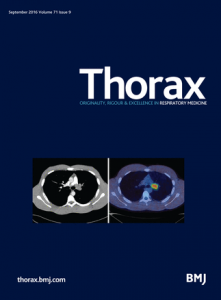
It’s not often that a paper elicits an apology — but that’s just what happened when family members first learned a bagpipe musician died from inhaling mold and fungi from a case study reported in a journal. The hospital has since apologized; the journal, however, told us it is not planning to issue a retraction.
The University Hospital of South Manchester NHS Foundation Trust in Wythenshawe, UK, has apologized and launched an internal investigation into the case report after the family’s distress was extensively covered by the UK’s mainstream media, such as The BBC, The Independent, The Daily Mail, and The Telegraph.
There seem to be conflicting accounts over whether any consent was obtained to publish the report. The Thorax paper says the patient gave consent, and according to Gisli Jenkins, co-editor-in-chief of the journal and a professor of experimental medicine at Nottingham University in the UK, consent was sought from the family. But the patient’s daughter told us that neither the next of kin nor the patient were approached for consent.
The release of the report on August 22 was “completely unethical,” said Erin Tabinor, daughter of musician Bruce Campbell and a makeup artist in Liverpool, UK. Tabinor told us that the family wasn’t aware that playing bagpipes was the cause of Campbell’s death: Continue reading Despite apology, bagpipes study not slated for retraction
 The BMJ has released a detailed correction to a much-debated article critiquing the expert report underlying the U.S. dietary guidelines.
The BMJ has released a detailed correction to a much-debated article critiquing the expert report underlying the U.S. dietary guidelines. A
A  The BMJ is not going to retract a 2015 article criticizing the expert report underlying the U.S. dietary guidelines, despite heavy backlash from readers, according to the author of the article.
The BMJ is not going to retract a 2015 article criticizing the expert report underlying the U.S. dietary guidelines, despite heavy backlash from readers, according to the author of the article.




 After the reviewer of a rejected paper was publicly outed, the BMJ has taken the unusual step of explaining why it chose not to publish the paper.
After the reviewer of a rejected paper was publicly outed, the BMJ has taken the unusual step of explaining why it chose not to publish the paper.